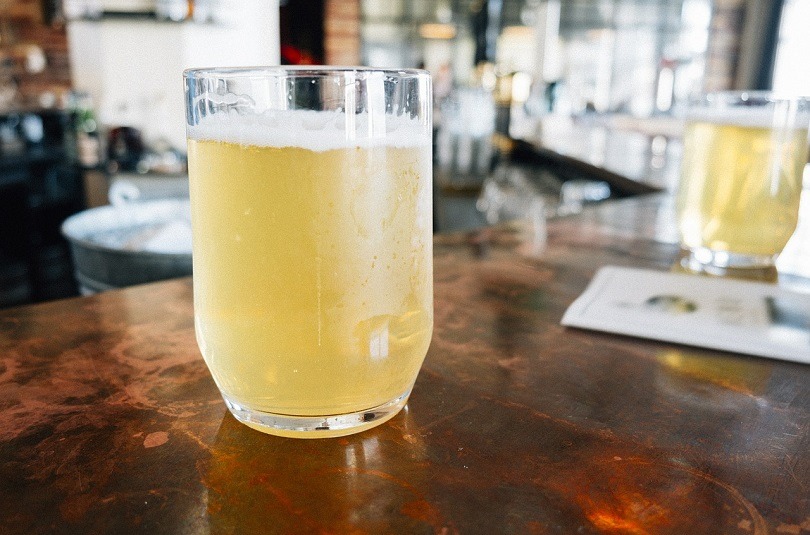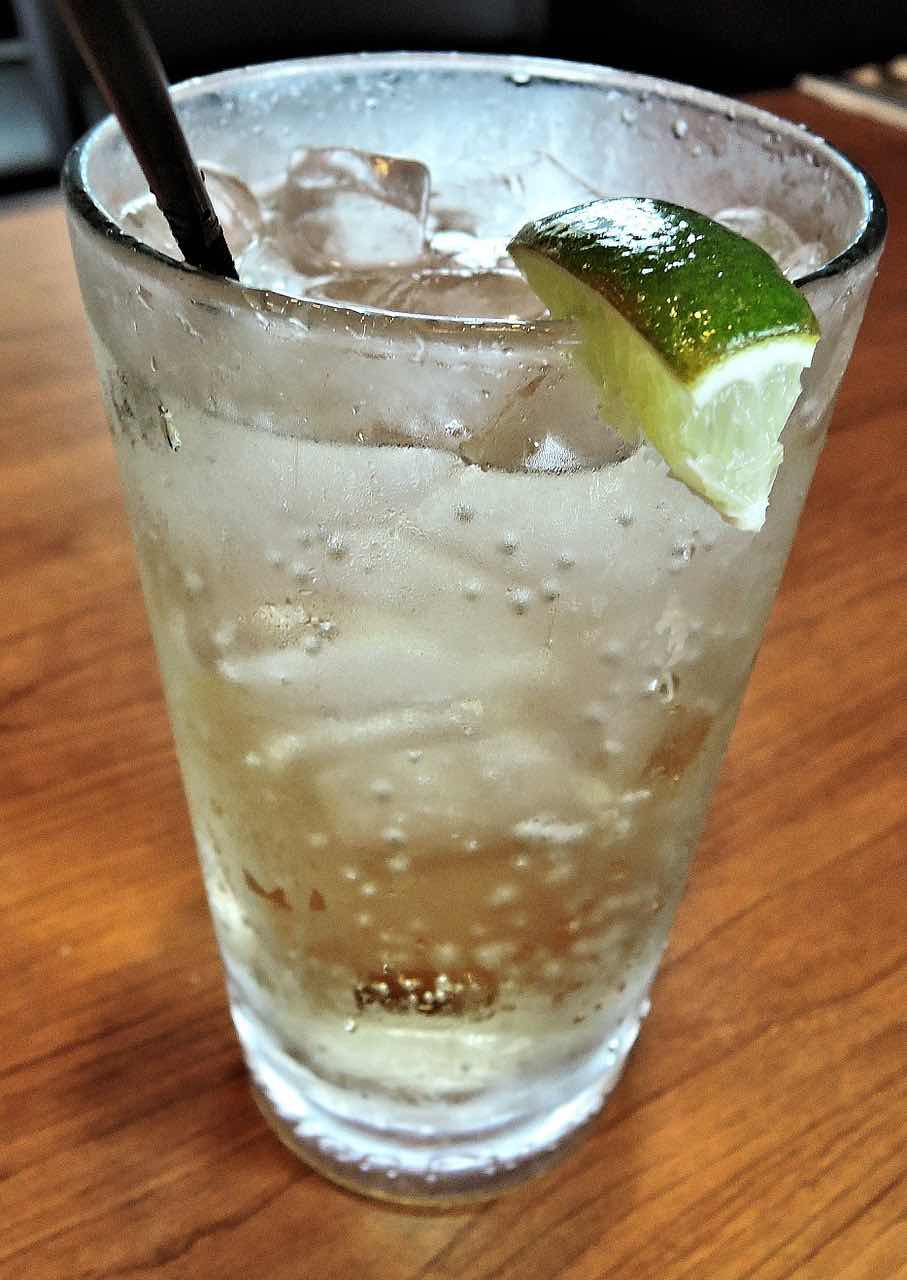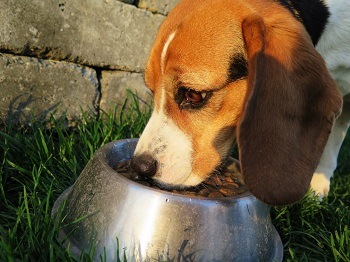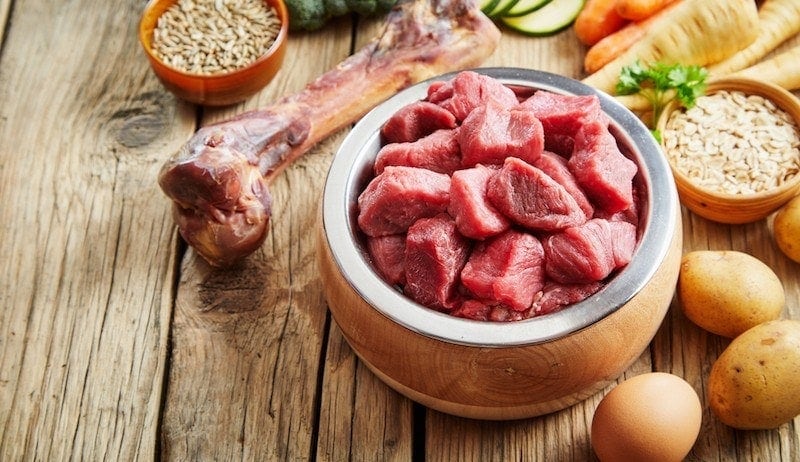Can Dogs Drink Ginger Ale? Nutrition Facts & Safety Guide

Updated on

Whenever you had a tummy ache as a kid, your mom probably gave you ginger ale, whether it was warm or straight out of the fridge. For many of us it worked. The ginger has soothing properties that can ease nausea. The fact that our moms gave us ginger ale probably helped, too. But you may wonder if you can take this childhood remedy to your pet’s digestive woes.
The short answer is probably not.
There are several aspects to consider with this question. There is the effect of ginger. Also, you can’t ignore the fizzy factor. Then, we have to talk about what’s in your soda. All contribute to the final answer about whether you can give your pup this beverage. Let’s do a deep dive into each one of them.
 Can Dogs Have Ginger Ale?
Can Dogs Have Ginger Ale?
Ginger itself is not as problematic as its inclusion in the soda. While there isn’t much evidence, some research suggests that the root may be efficacious for treating vomiting in cancer patients. It may also help with milk production in lactating pets.
European Food Safety Authority (EFSA) concluded in a scientific opinion on its safety for a variety of companion animals, including dogs. They found that there was no cause for concern for its use as an additive in pet foods.

We should clarify that these findings pertain to Zingiber officinale, the Asian variety that you’ll see in the produce section of your grocery store and not wild ginger. The former is the type used in soft drinks that contain this ingredient. The report also determined an amount that the panel considered safe at 0.26 milliliters/kilogram for dogs, which is roughly 1 fluid ounce of ginger ale for a 10-pound dog.
Our research did not identify a concentration of ginger in the soft drink, presumably because it’s a proprietary formula. However, ginger beer will likely have more of the root, putting it off the table on this score. A risk of irritation always exists when giving your dog anything new. It might even make his nausea worse as a result.
Sparkling Water and Your Pup
The next thing we need to discuss is carbonation. This quality of ginger ale is likely foreign to your pup. You may even find that he’s afraid of the bubbles. The effects on his digestive tract are likely the same as yours. He may feel bloated after drinking some soda. That’s another reason you probably should nix giving him ginger ale. It’ll likely make your pooch uncomfortable.
Sweeteners and Your Pet
The other contents of that glass of ginger ale are the proverbial elephant in the room. They provide even more reasons why you shouldn’t give your dog this beverage. It doesn’t matter if the soda is regular or diet. Let’s break it down, ingredient by ingredient. Using Schweppe’s Ginger Ale as an example, we find that the pop contains:
- Carbonated water
- High fructose corn syrup
- Citric acid
- Sodium benzoate (preservative)
- Caramel color
- Natural flavors
We’ve discussed carbonation and ginger already. Let’s talk sweeteners. High fructose corn syrup (HFCS) is a common ingredient in many foods and beverages. It offers an advantage over other sugars because manufacturers can use less of it because of an increased perception of sweetness. Research has also shown that it doesn’t affect the human body differently than regular table sugar, i.e., sucrose.
The problems with HFCS or any other sweetener are the same as they are in people—obesity. The other concern is that it can cause spikes in you or your dog’s blood sugar. That is dangerous for diabetic dogs. Artificial ones aren’t much better, especially xylitol. It can lower your pup’s blood sugar to harmful levels and cause liver failure.
Then, we come to citric acid. The name should raise a red flag from the start. It’s what gives lemons and other citrus fruits their pucker power. It’s also another possible source of irritation for your pet because it packs quite a punch in your ginger ale’s acidity. Canada Dry Ginger Ale, for example, is on the extremely erosive end of the spectrum at 2.82 pH.
By comparison, straight lemon juice is 2.25 pH.
Sodium benzoate is a preservative used in a wide array of foods and beverages. It also has medical uses for treating urinary conditions. The FDA considers it as generally recognized as safe (GRAS). The primary safety concerns exist if you get it in your eyes. We can rule it out as something you have to worry about with ginger ale. The same thing applies to the caramel color.

Treating Nausea and Other Digestive Issues
We’d be remiss if we didn’t address why you would even consider giving your dog ginger ale in the first place.
The essential thing to understand about this symptom is that it isn’t diagnostic of a particular health condition. Many things can cause your pet to vomit, from eating too fast to liver failure. If it’s a one-off occurrence, it might not be a concern. However, it’s equally crucial to note if other signs of illness are present, such as:
- Lethargy
- Diarrhea
- Weakness
- Drooling
These symptoms may indicate a more serious health condition that warrants a visit to your vet. We’d strongly urge you not to give your pup ginger ale or any other home remedy.
 Final Thoughts About Giving Your Dog Ginger Ale
Final Thoughts About Giving Your Dog Ginger Ale
Even though ginger ale probably helped your nausea, we can’t say the same thing for dogs. While ginger might be okay, the carbonation, acidity, and sweetening agents are all reasons not to give your dog a sip of your pop. If it’s not serious, fasting for several hours will allow your pup’s tummy to settle down. If the symptoms continue, take your pet to the vet instead.
See also:
Featured Image Credit: JayMantri, Pixabay
 Can Dogs Have Ginger Ale?
Can Dogs Have Ginger Ale?
 Final Thoughts About Giving Your Dog Ginger Ale
Final Thoughts About Giving Your Dog Ginger Ale








